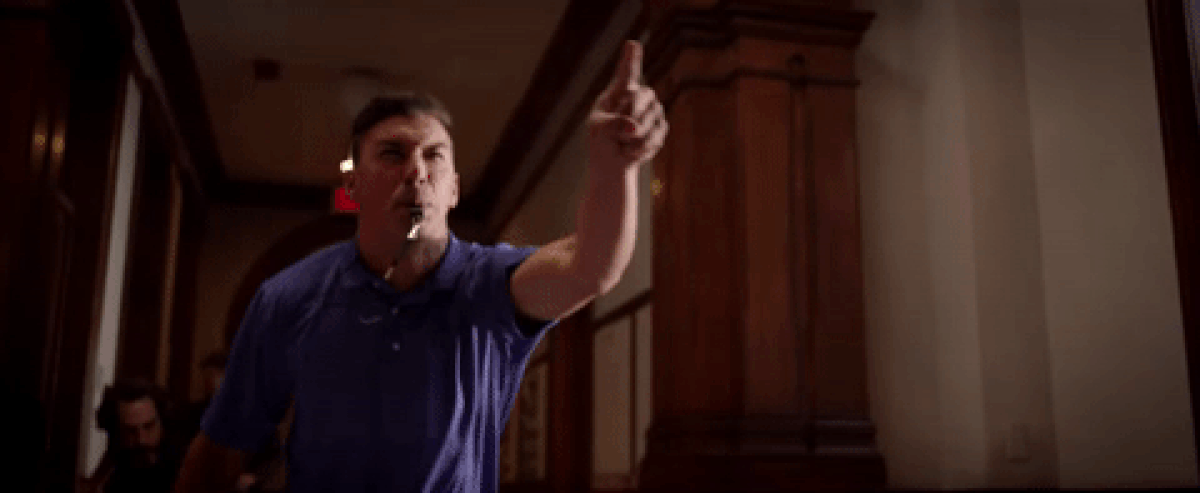As we stagger from one political convention into the next, it seems appropriate to discuss two common Twitter memes arising from the Republican convention in Cleveland: “dog whistle” and “dumpster fire.” Neither expression is new, but this seems to be the year for them both.
Aside from being a high-pitched communication device, a “dog whistle,” The Oxford English Dictionary says, is “A statement or expression which in addition to its ostensible meaning has a further interpretation or connotation intended to be understood only by a specific target audience.”
Urban Dictionary is more direct, in a 2006 entry on “dog whistle comment”: “A surreptitious inclusion of code words or phrases that will be heard by some of those listening, while not disturbing the other listeners, who may not appreciate the hidden message(s).”
The fact that it’s already in the OED indicates how loud “dog whistle” has become. Even before that, lexicographers had been aware of the term: William Safire wrote about it in 2005, noting that The Economist magazine attributed the expression to a political consultant in Australia. Safire found “dog whistle” in a March 1997 issue of The Australian newspaper, which attributed the phrase to, um, Americans. (The author of that 1997 piece later said he was pretty sure it came from Australian politics.)
But both the Americans and the Australians may have been late to the party. As the Merriam-Webster Words at Play blog notes, in October 1995, a columnist for the Ottawa Citizen, Jim Coyle, wrote that the term “special interest” was “an all-purpose dog-whistle that those fed up with feminists, minorities, [and] the undeserving poor hear loud and clear.” Eleven months later, Coyle wrote: “It would be nice to think the premier was merely being thoughtless, rather than calculating, that he was not blowing on that dog whistle that only racists hear.”
Then there’s “dumpster fire,” a term that is burning through many media outlets. “Many in the media have equated this election to a ‘Dumpster fire,’ but in reality, Americans’ frustration with Washington is on full display,’ ” the chief executive of a conservative advocacy group said. Another news report said that “the buzz about Melania Trump taking words from the mouth of Michelle Obama adds more fuel to the dumpster fire the Trump campaign sometimes seems to be.” And Sen. Ben Sasse of Nebraska and his staff repeatedly invoked “dumpster fires,” most memorably when a spokesman said that rather than attend the Republican convention, Sasse would “instead take his kids to watch some dumpster fires across the state, all of which enjoy more popularity than the current front-runners.”
Though “dumpster fire” is newer to the lexicon, the Oxford Dictionaries added it this year, with the definition “informal A chaotic or disastrously mishandled situation: last season was a dumpster fire, and it didn’t get that way overnight.”
As that definition seems to indicate, “dumpster fire” as a metaphor has its roots in sports.
The Language Log blog says the earliest metaphorical use was in 2009 by The Washington Post sportswriter Mike Wise, who told The Huffington Post that he’d heard it from a traffic reporter he used to work with. But Wise was at the back of the pack in this case: A Nexis search shows a rash of “dumpster fires” in sports reports starting in November 2008, in such places as The Indianapolis Star (“Look at the dumpster fire down in Jacksonville…”), The Arizona Star (“The season that began as a dumpster fire…”) and The Lawton Constitution in Oklahoma (“…their bullpen is a dumpster fire”). But many “dumpster fires” followed Wise’s use as well, proving again how a good idiom (or cliché) can spread like wildfire.
The first political reference to a “dumpster fire” that we can find is even earlier, in a July 2008 post on the Scholars and Rogues blog: “maybe, satire aside, this whole dumpster fire is bad for progressives fighting their way toward November.”
The term is becoming all-consuming. As the Oxford words blog noted:
Although we see a fairly steady rise and fall in frequency through 2013 and 2014, usage runs unusually high between the beginning of last summer and the end of 2015. Curiously enough, Donald Trump just happened to announce his campaign for the presidency on June 16th of last year.
The “Dumpster” trademark expired in 2008, so there’s no need to capitalize it. Maybe it’s time for the idiom to expire, too: It’s not very accurate, because “dumpster fires” in real life are usually not disasters, or disastrously handled. A “dumpster fire” may look spectacular, sending up large quantities of smoke and flames, but it is confined to a metal box. So to use the metaphor “dumpster fire” in a way other than to mean “spectacle” is overstating its importance. But it won’t stop the idiom from spreading, even though the “dumpster fire” itself usually does not.
Merrill Perlman managed copy desks across the newsroom at the New York Times, where she worked for twenty-five years. Follow her on Twitter at @meperl.

